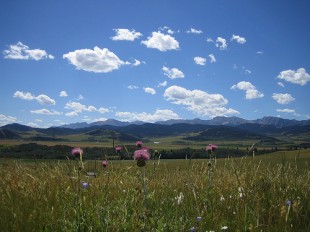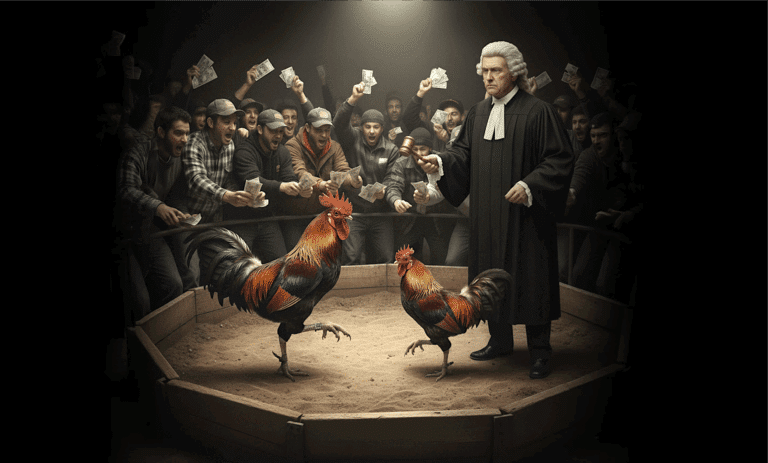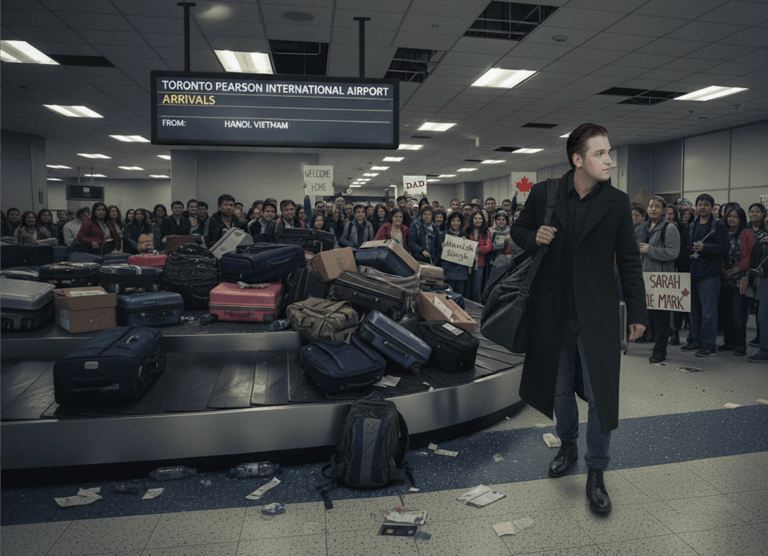Last Sunday, before Albertans voted, the polls showed the Wildrose Party (WR) ahead of the Progressive Conservatives (PCs) by a 42/32 spread. Next day the PCs won, 44/34, which translated into a comfortable majority. So, what happened?
The simplest and somewhat “tekkie” explanation is that the polls were wrong, that they were consistently in that one-out-of-twenty category that is left over when the probabilities of accuracy are announced as being plus or minus 3% nineteen times out of twenty. A series of rogue polls is possible, of course, but in the same way that, as Hegel once said, it was possible for the Sultan to become Pope.
More likely is that there was a systematic problem in the way the polls were conducted. Almost every pollster uses landlines when they call, annoyingly, around suppertime to interrogate you on your intentions. If your only phone is a cell, you are likely to be overlooked and if you live by tweets and Facebook, you are invisible.
There was, accordingly, a significant unknown and unknowable factor in play, in addition to the 20% or so who claimed to be undecided. Pollsters don’t like murky unknowable unknowns, so everyone thought the Wildrose lead was real, which provided the PCs with an opportunity that Stephen Carter, the tweet-wizard who helped Mayor Naheed Nenshi win, seized. The narrative he developed over the last couple of weeks was well tested: Wildrose was “scary.”
But wait a minute! The people who played the scary card, as in “Stephen Harper is scary,” were federal Liberals and NDPers. That is, they were lefties and the PCs were still at least nominally conservative.
Not so. Consider how things looked to Alison Redford. She won the leadership of the party by pandering to public sector unions, especially teachers. Then she rewarded them. In a province near the top in per-capita spending, she promised increased expenditures. And, of course, she tried to distance herself from the PC history of corruption, intimidation and entitlement.
In short, Redford acted on the probably accurate assumption that most voters are not surprised that politicians cheat and lie. To the gullible and innocent she could make the plausible claim that she is different. For minimally engaged voters, the PC brand is familiar and life in Alberta is pretty good.
But the PCs still had to find new supporters. Since WR was mounting a challenge from the conservative side of the political spectrum, they could find new supporters only by courting the left, where Redford is more comfortable anyway.
This is why the WR leader, Danielle Smith, indicated that “strategic voting” by those who normally support the NDP or the Liberals helped the PCs. It also explains why the last conservative in the PC party, my good friend, Ted Morton, lost. Without Ted inside the tent, look to the PCs to drift ever farther to the left. This may please some people, especially those who equate a “national” vision with big government, but it promises a large target for WR when they gain more experience.
For their part, WR managed to make some major blunders reminiscent of the early Reform Party and the Alliance before, under Stephen Harper, they learned the discipline required to win. Every party, including WR, is a coalition. They brought together social conservatives, libertarians, populists and Alberta patriots, united chiefly in their deep disgust, for different reasons, about what the PCs have become.
Let’s take the constituent elements in order.
Because they are motivated almost entirely by conscience, the so-cons were always a problem. Allan Hunsperger, a so-con pastor, allowed in a year-old blog that, upon their demise, homosexuals would spend eternity in a lake of fire; Ron Leech, another so-con pastor, said he had an advantage because he was a white guy and so could represent all citizens, unlike a Sikh PC candidate who represented only his ethnic community.
Anyone who follows ethnic politics knows that Leech may have exaggerated the sources of his opponent’s support, but what he said was not entirely untrue. And Hunsperger? Well, Smith said that might be his personal view, but it was not WR policy. Good to know.
That is, Smith’s handling of Hunsperger’s bozo eruption (as it was called) was consistent with her libertarian view regarding free speech, even when that speech was unbelievably stupid. During an election, when a lot more is at stake than maintaining consistent libertarian views, it was a gross strategic error, a “self-inflicted wound,” she later called it. By then it was too late. The “scary” message had traction.
The populists and patriots denounced in the Eastern media as “little Albertans” will prove to be both resilient and Premier Redford’s greatest challenge.
Her problem, as she will rediscover soon enough, is that Alberta (along with the other Western provinces) really does have long-term economic and geopolitical interests distinct from those of Canadians living in the St. Lawrence Valley. Until our fellow-citizens in Ontario and Quebec accept Alberta leadership, building bridges, as Redford promises, is an exercise in futility or worse, capitulation.
Hence the most curious result of the election: Wildrose and Danielle Smith are tasked with defending Alberta’s interests even against the Alberta government.
~
Barry Cooper is a professor of Political Science at the University of Calgary.







